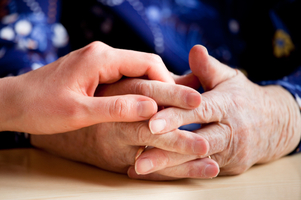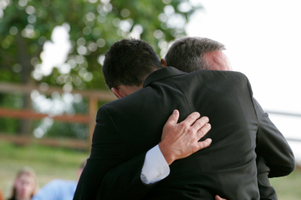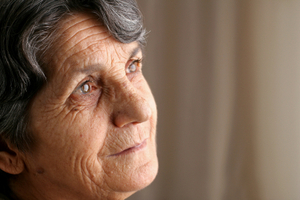
November 05, 2012
When you lose a family member or loved one, the people who care about you try to help you in their own ways. Some people bring you food. Some invite you to spend time in a casual setting or doing planned activities. Some think it’s best to keep your mind occupied by work and hobbies. Others expect you to stay away from work or other activities while you deal with your grief. Everyone’s expectations are different, and everyone’s needs are different, when dealing with grief. You must communicate your needs to your friends and family to help them help you while you’re grieving.

November 05, 2012
The Kubler-Ross theory of grief has become one of the most widespread grief theories in the past few decades. Based on Kubler-Ross’s book, On Death and Dying, this grief theory attempts to identify the stages of grief that a person experiences, and the types of feelings and behavior that may occur during these phases. With the widespread acceptance of this theory among the general populace, a person suffering from the loss of a loved one is most likely to encounter this grief theory among the support circle of friends and family.

November 05, 2012
The dual process model of grief offers an attempt to explain why many individuals seem to switch back and forth between mourning and avoiding a loss. This oscillation can occur many times while an individual is grieving, and does not reflect an end of the grief process. The dual process model is an effective coping mechanism to help a bereaved individual understand and accept his personal experience with the grief process.

November 05, 2012
When a loved one dies, helping kids cope with their loss is challenging, particularly as you work through your own grief. A child's ability to understand death, and the manner in which you approach the topic, depends on the child's age. While each child is different, basic guidelines apply.

November 05, 2012
Much of the 20th century focus of grief theory has been on severing bonds with a lost loved one, and moving on with one’s life. The 1996 book Continuing Bonds: Another View of Grief explores an alternate viewpoint: the idea that the bereaved maintain a link with the deceased. The continuing bonds theory has resonated with many mourners since the book’s publication, and this grief theory provides an ongoing methodology to explore a loss.

November 05, 2012
Many grief theories have evolved over the past century that attempt to help individuals understand and deal with the grief process. While no single grief model applies to all grievers, practical application of these theories can help a bereaved individual explore the grief process. Understanding these models also helps family and friends provide the appropriate support during and after a loss.

By: Rachel Schnebly
November 05, 2012
Almost everyone worries about what to say to those who are grieving. It is a delicate time, and you want to say something comforting. There is also fear of saying the wrong thing. This often leads people to avoid talking about death or mentioning the deceased person. However, those grieving need to feel their loss is acknowledged, and their loved one won’t be forgotten.

November 05, 2012
Bereavement support groups offer a good venue for grieving individuals to seek support. Grieving is often a lonely process, and some people find it extremely helpful to speak with others experiencing a similar loss. It helps to know that other people are going through what you’re going through. Bereavement groups help you explore and express your grief, and are a great alternative to, or supplement for, one-on-one bereavement counseling.

November 05, 2012
When you lose someone, the grief is intense. Pain, memories, and questions can easily haunt you. There is an emptiness inside that may make you feel like you’ll never laugh, recover, or be whole again. When will this pain end? More importantly, when should it end?

November 05, 2012
Grieving is an individual experience, dependent on you and the nature of your loss. There isn't a "normal" or "expected" period of time for grieving. Some people adjust to their altered life within several weeks or months, while others take a year or more.










